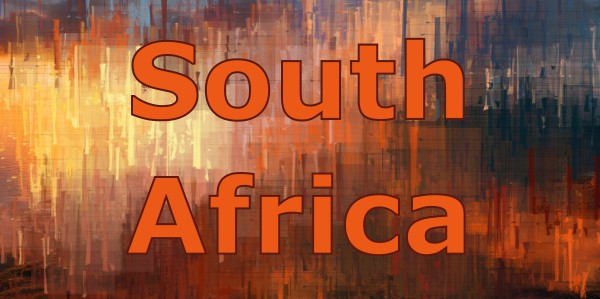Home page | Generative Images Collection | Blog Entries

South African National Elections 2024: An Overview
Published on 18 May 2024 by Juan-S.
South Africa's national elections are scheduled to take place on Wednesday 29 May 2024, marking a pivotal moment in the country's political landscape. These elections will determine the composition of the National Assembly and, consequently, the presidency. The elections come at a time of significant economic and social challenges, with voters seeking solutions to issues like unemployment, corruption, and economic inequality.
Major Political Parties and Candidates
African National Congress (ANC): The ruling party since the end of apartheid in 1994, the African National Congress, faces critical scrutiny. Under the leadership of President Cyril Ramaphosa, the ANC is aiming to retain its majority. Ramaphosa's administration has been focused on anti-corruption measures and economic reforms, though internal divisions and allegations of corruption within the party present challenges.
Democratic Alliance (DA): The Democratic Alliance is the main opposition party, advocating for a market-driven economy and stronger anti-corruption measures. Under the leadership of John Steenhuisen, the DA seeks to increase its support base beyond its traditional urban strongholds and appeal to a more diverse electorate.
Economic Freedom Fighters (EFF): Led by Julius Malema, the Economic Freedom Fighters promote a radical economic transformation agenda, including land expropriation without compensation and nationalization of key industries. The EFF aims to attract young voters and those dissatisfied with the status quo.
Other Parties: Several smaller parties are also contesting the elections, including the Inkatha Freedom Party (IFP), Freedom Front Plus (FF+), ActionSA, United Democratic Movement (UDM), African Christian Democratic Party (ACDP), Good, Congress of the People (COPE), Pan Africanist Congress (PAC), Al Jama-ah, and others. These parties could play a crucial role in coalition-building if no single party wins an outright majority.
Key Issues for Voters this Election
Economy: Economic performance is a central issue, with South Africa grappling with high unemployment rates, slow growth, and fiscal pressures. Voters are particularly concerned about job creation, investment, and economic opportunities.
Corruption: Corruption remains a significant concern. The ANC's efforts to combat corruption, particularly through the Zondo Commission's recommendations, will be closely scrutinized by the electorate.
Public Services: The efficiency and quality of public services, including healthcare, education, and infrastructure, are critical issues. Many South Africans are frustrated with service delivery failures and are looking for tangible improvements.
Energy Crisis: Frequent power cuts due to issues at the state-owned electricity company, Eskom, have impacted businesses and daily life. Solutions to the energy crisis are a major topic in the election discourse.
A Summary of the Electoral Process
Voting System: South Africa uses a proportional representation system for its national elections. Voters cast their ballots for political parties, and seats in the National Assembly are allocated based on the percentage of votes each party receives. This system aims to ensure a fair representation of diverse political views.
Voter Registration: The Independent Electoral Commission (IEC) oversees the electoral process, ensuring fair and free elections. Voter registration drives are crucial to ensure a high voter turnout, especially among young and first-time voters.
Potential Outcomes and Implications of the 2024 National Elections
Coalition Governments: Given the growing fragmentation of the political landscape, there is a possibility that no party will secure an outright majority. This scenario could lead to coalition governments, which might bring both stability and compromise or could lead to political uncertainty and negotiation complexities.
Policy Shifts: The election results could significantly impact South Africa's policy direction, particularly in areas such as land reform, economic policy, and anti-corruption measures. The balance of power between the ANC, DA, EFF, and other parties will shape the legislative agenda and governance for the coming years.
The South African elections feature a diverse array of political parties, each offering distinct policies and visions for the country. South African voters have a broad spectrum of choices that reflect the nation's complex socio-political landscape.
The 2024 elections are a critical juncture for the nation. With key issues such as the economy, corruption, public services, and energy on the forefront, voters will be making decisions that will shape the future of South Africa. The outcomes will not only influence domestic policy but also the country's position on the global stage.
Visit the following links for more information on the 2024 South African elections:
List of Parties and Independents (Electoral Commission of South Africa)
Voting Process (Electoral Commission of South Africa)
2024 General Elections (South African Government)
The above article content and research regarding the 2024 General Elections of the Republic of South Africa was compiled with the assistance of AI.
About me | Contact me | Generative Images Collection | Blog Entries
Terms of Use | Privacy Policy | Cookie Policy (This website uses cookies and by continuing to browse this website you agree to the website’s Cookie and Privacy Policies.) | Sitemap
Copyright © juansteph83.com All rights reserved.